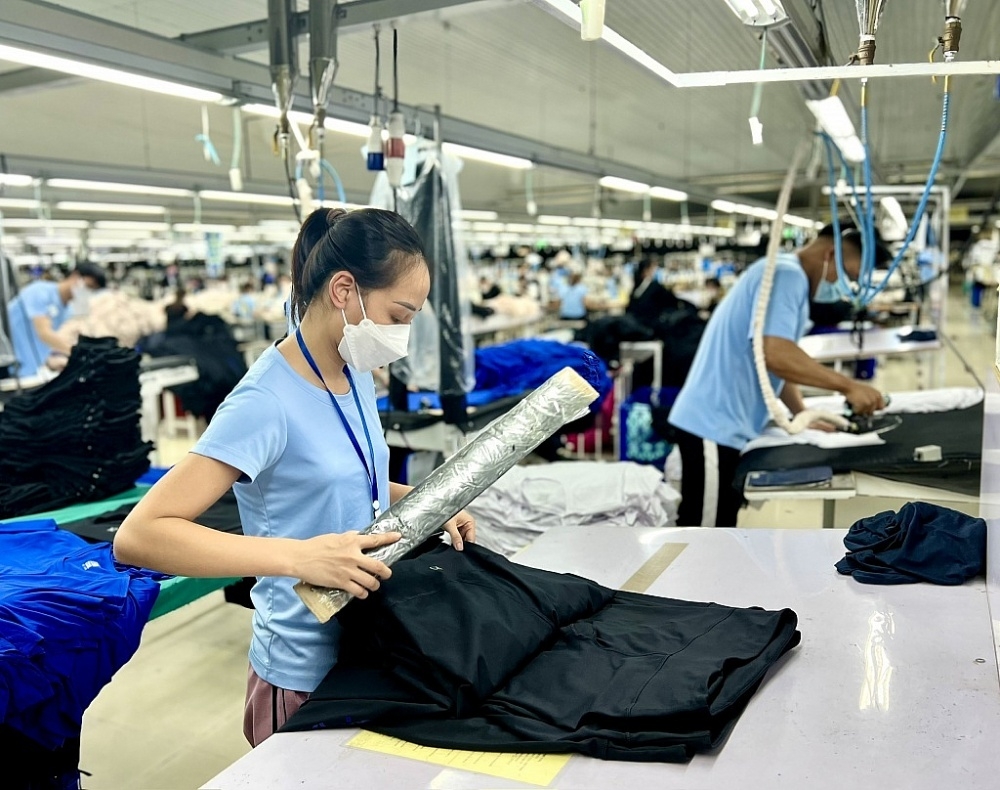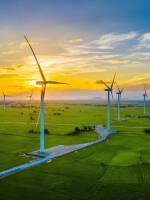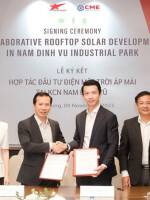
Increasingly stringent requirements
Currently, green transformation and sustainable development are an inevitable trend for Vietnamese businesses, as major export markets, including the EU, consistently demand high and strict environmental standards.
Since October 2023, the EU has implemented the Carbon Border Adjustment Mechanism (CBAM) in its transitional phase. This is a policy tool by the EU aimed at imposing carbon taxes on all goods imported into this market based on the greenhouse gas emissions intensity in the export country’s production process.
According to the Vietnam Trade Office in Belgium and the EU, since the third quarter of 2023, the EU has issued and passed a series of regulations related to green and sustainable development, such as obligations to report the purpose of the carbon border adjustment mechanism in the transitional phase, and amendments to regulations regarding maximum pesticide residues. Alongside these changes, in Vietnam’s major export markets, consumers are increasingly concerned about environmental protection in addition to product quality and pricing.
For Vietnamese businesses, restructuring production, and investing in infrastructure not only require significant financial resources and human capital but also experience and skills to successfully apply and meet international regulations and standards. Hence, support and investment cooperation from international businesses are a necessary direction, utilizing the strong capabilities of these companies and guiding Vietnamese businesses on the right path for implementation.
In fact, many collaboration and investment programs from European countries have flowed into Vietnam to support businesses. At the end of 2022, Vietnam and a group of international partners, including the UK, the EU, France, Germany, the US, Italy, Canada, Japan, Norway, and Denmark, passed the Just Energy Transition Partnership (JETP). This international partner group committed to mobilize US$15.5 billion from public and private financial sources over 3-5 years to help Vietnam achieve net-zero emissions by 2050.
Notably, many commercial banks in Vietnam have been supported by European banks with preferential loans for green economic development. Recently, the Maritime Commercial Joint Stock Bank (MSB) and the Dutch Development Bank (FMO) signed a Memorandum of Understanding on a cooperation to provide medium to long-term loans of up to US$100 million with terms of up to nine years for the purpose of financing small and medium-sized enterprises and green projects. Additionally, BIDV has become a strategic partner of international sponsors such as the French Development Agency (AFD) and the Asian Development Bank (ADB) in implementing green projects in Vietnam.
Numerous opportunities for continued cooperation
On November 1, Vietnam and Denmark declared the establishment of a Green Strategic Partnership (GSP). The GSP is a mutually beneficial cooperative agreement with the goal of promoting political cooperation and expanding economic relations related to green growth. Nicolai Prytz, the Danish Ambassador to Vietnam, stated thatThe the GSP would be an important tool to support Vietnam in achieving its ambitious national goals for green transformation and fulfilling international commitments to achieve net-zero emissions by 2050.
He emphasized that based on this relationship, Denmark could contribute its experiences, knowledge, technologies, and green solutions. Furthermore, both countries will enhance the exchange of knowledge and best practices, build capacity, and promote technology transfer.
At the Green Economy Forum (GEF) 2023 organized by the European Chamber of Commerce in Vietnam (EuroCham), Dutch Prime Minister Mark Rutte emphasized that manufacturing companies and suppliers need to comply with the new sustainability regulations of the EU. Consequently, Prime Minister Rutte proposed that Dutch companies support Vietnamese companies in implementing these regulations.
Similarly, Valdis Dombrovskis, Vice President of the European Commission, supported enhanced cooperation regarding the EU’s green deal and green technologies, calling for maintaining commitments and supporting green energy and growth.
Addressing this matter, Gabor Fluit, President of EuroCham, noted that European companies in Vietnam have supported technology transfers, shared expertise, developed a high-quality workforce, and initiated advanced green projects in Vietnam. These companies have closely collaborated with the government during the green transformation and are also working closely with the Vietnamese business community, especially key industries such as textiles, footwear, and aquaculture.
Binh Nam – Ha Thanh




